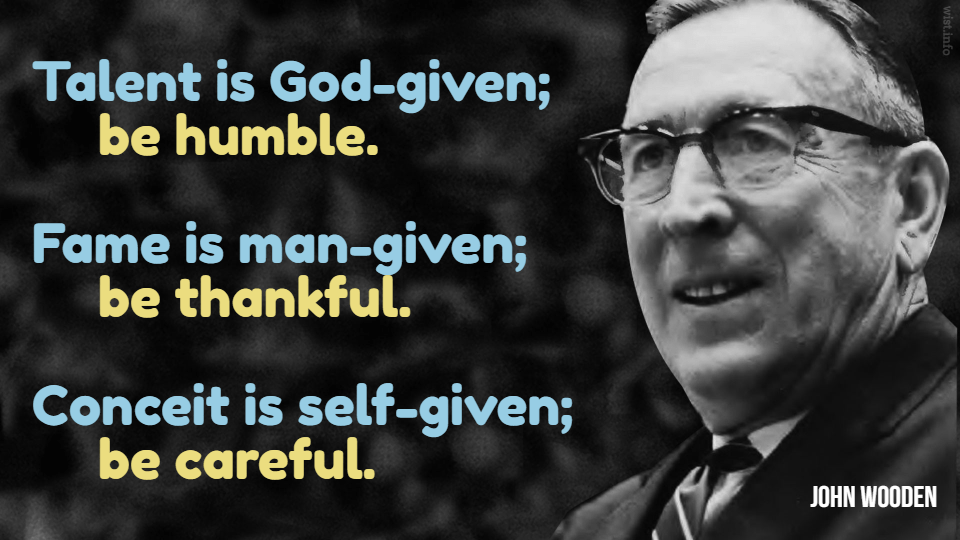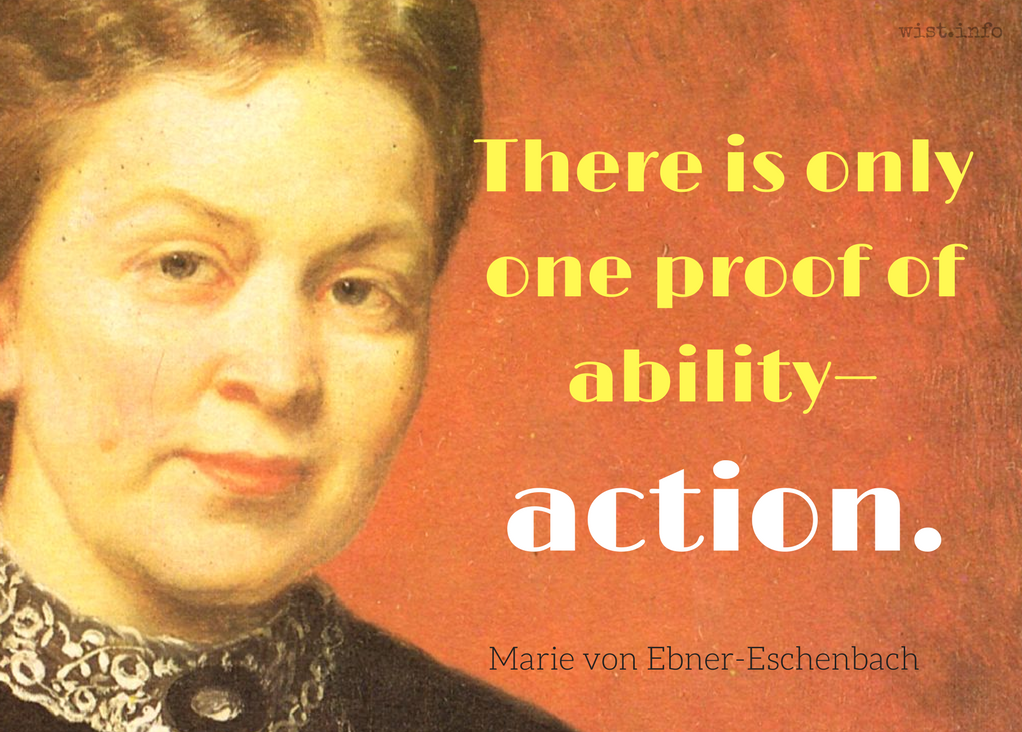Making a book is a craft, like making a clock; it needs more than native wit to become an author.
[C’est un métier que de faire un livre, comme de faire une pendule: il faut plus que de l’esprit pour être auteur.]
Jean de La Bruyère (1645-1696) French essayist, moralist
The Characters [Les Caractères], ch. 1 “Of Works of the Mind [Des Ouvrages de l’Esprit],” § 3 (1.3) (1688) [tr. Stewart (1970)]
(Source)
(Source (French)). Alternate translations:
To make a Book, is like making a Pendulum, a Man must have Experience, as well as Wit to succeed in it.
[Bullord ed. (1696)]
Tis as much a Trade to make a Book, as to make a Watch; there's something more than Wit requisite to make an Author.
[Curll ed. (1713)]
To make a Book, is no less a Trade than to make a Clock; something more than Wit is necessary to form an Author.
[Browne ed. (1752)]
To make a book is as much a trade as to make a clock; something more than intelligence is required to become an author.
[tr. Van Laun (1885)]
Quotations about:
talent
Note not all quotations have been tagged, so Search may find additional quotes on this topic.
A man compensates for the lack of a talent by despising it. He removes the obstacle he finds between himself and merit, and so finds himself on a plane with those whose work he envies.
[Un homme à qui il manque un talent se dédommage en le méprisant: il ôte cet obstacle qu’il rencontroit entre le mérite et lui; et, par là, se trouve au niveau de celui dont il redoute les travaux.]Charles-Lewis de Secondat, Baron de Montesquieu (1689-1755) French political philosopher
Persian Letters [Lettres Persanes], Letter 145, Usbek to *** (1721) [tr. Healy (1964)]
(Source)
(Source (French)). Alternate translations:
A man to whom a talent is wanting, makes himself amends by despising it: he removes that obstacle which was between merit and him, and thereby finds himself on a level with the man whose pen he dreads.
[tr. Ozell (1760 ed.), # 73]
When a man is destitute of any particular talent, he indemnifies himself, by expressing his contempt for it; he removes that obstacle which stood between merit and him, and by that means, raises himself to a level with those whom he before feared as rivals.
[tr. Floyd (1762)]
When a man lacks a particular talent, he indemnifies himself by despising it: he removes the impediment between him and merit; and in that way finds himself on a level with those of whose works he formerly stood in awe.
[tr. Davidson (1891)]
A man who lacks a certain talent compensates himself by despising it: he removes the obstacle placed between him and merit, and thereby finds himself on an equality with the person whose labors he dreads.
[tr. Betts (1897)]
A man who lacks a certain talent will compensate himself by despising it; he eliminates the obstacle which blocks his path to excellence, and, as a consequence, sees himself as the equal of the rival whose work he fears.
[tr. Mauldon (2008), # 156]
I am, somehow, less interested in the weight and convolutions of Einstein’s brain than in the near certainty that people of equal talent have lived and died in cotton fields and sweatshops.
Stephen Jay Gould (1941-2002) American paleontologist, geologist, biologist
The Panda’s Thumb, Part 4, ch. 13 “Wide Hats and Narrow Minds” (1980)
(Source)
WYATT: Do you think that philosophy contribute to happiness?
RUSSELL: Yes, if you happen to be interested in philosophy and good at it, but not otherwise – but so does bricklaying. Anything you’re good at contributes to happiness.
Bertrand Russell (1872-1970) English mathematician and philosopher
Interview by Woodrow Wyatt, BBC TV (1959)
Collected in Bertrand Russell's BBC Interviews (1959) [UK] and Bertrand Russell Speaks His Mind (1960) [US].
We cannot all do everything.
[Non omnia possumus omnes.]Virgil (70-19 BC) Roman poet [b. Publius Vergilius Maro; also Vergil]
Eclogues [Eclogae, Bucolics, Pastorals], No. 8 “Pharmaceutria,” l. 63 (8.63) (42-38 BC) [tr. Mackail (1899)]
(Source)
Invoking the Pierian Muses to finish the tale, after the singer has given the first half.
(Source (Latin)). Alternate translations:
All cannot all things do.
[tr. Ogilby (1649)]
We cannot all do all things.
[tr. Davidson (1854), Wilkins (1873), Greenough (1895), Day Lewis (1963), @sentantiq (2018)]
Scarce may all do everything.
[tr. Calverley (c. 1871)]
We are not equal all
To every theme.
[tr. Palmer (1883)]
All things are not possible to all.
[tr. Bryce (1897)]
We cannot all do everything.
[tr. Fairclough (Loeb) (1916)]
We are not all sufficient for all things.
[tr. Mackail/Cardew (1908)]
No single singer touches all the chords.
[tr. Williams (1915)]
We cannot all succeed in every task.
[tr. Rieu (1949)]
For none of us all is skilful in all things.
[tr. Johnson (1960)]
We are not all capable of all things.
[tr. Kline (2001)]
‘Tis the Glory and Merit of some men to write well, and of others not to write at all.
[La gloire ou le mérite de certains hommes est de bien écrire; et de quelques autres, c’est de n’écrire point.]Jean de La Bruyère (1645-1696) French essayist, moralist
The Characters [Les Caractères], ch. 1 “Of Works of the Mind [Des Ouvrages de l’Esprit],” § 59 (1.59) (1688) [Bullord ed. (1696)]
(Source)
(Source (French)). Alternate translations:
'Tis the Glory or the Merit of some Men to write well; and of others not to write at all.
[Curll ed. (1713)]
It is the Glory and Merit of some Men to write well, and of others not to write at all.
[Browne ed. (1752)]
It is the glory and the merit of some men to write well, and of others not to write at all.
[tr. Van Laun (1885)]
The glory or merit of certain men lies in writing well: that of certain others, in not writing at all.
[tr. Stewart (1970)]
Land, gold, and trifles many give or lend,
But he that stoops in fame is a rare friend.[Aurum et opes et rura frequens donabit amicus:
Qui velit ingenio cedere, rarus erit.]Martial (AD c.39-c.103) Spanish Roman poet, satirist, epigrammatist [Marcus Valerius Martialis]
Epigrams [Epigrammata], Book 8, epigram 18 (8.18.9-10) (AD 94) [tr. Taylor (1657)]
(Source)
To a friend whom Martial considered as good or better an writer, who in turn publicly lauded Martial as the superior.
"To Cirinius." (Source (Latin)). Alternate translations:
Friends oft to friends in other points submit;
Few yield the glory of the field in wit.
[tr. Hay (1755)]
A friend will oft bestow gold, goods, or ground:
But who his wit will yield, is rarely found.
[tr. Elphinston (1782); Book 2, ep. 103]
It is not uncommon for one friend to bestow on another good and land, but to make concessions of literary pre-eminence is a rare proof of friendship.
[tr. Amos (1858)]
Gold, and wealth, and estates, many a friend will bestow; one who consents to yield the palm in genius, is rare.
[tr. Bohn's Classical (1859)]
Gold and possessions and lands many a friend will bestow: he who is willing to yield in genius will be rare.
[tr. Ker (1919)]
Full many a friend will give you wealth and fields;
But rare is he who thus in genius yields.
[tr. Pott & Wright (1921)]
Gold, wealth, estates will many a man resign
To save a friend, but few the bay divine.
[tr. Francis & Tatum (1924), #400]
Many a friend will give gold and riches and land, but one prepared to yield in talent will be found but seldom.
[tr. Shackleton Bailey (1993)]
Some friends will give up goods or yield their gold.
But few will let their own worth go untold.
[tr. Wills (2007)]
A friend will often give gold, wealth, and ground:
one who will yield in talent's rarely found.
[tr. McLean (2014)]
In the battle of existence, Talent is the punch; Tact is the clever footwork.
Wilson Mizner (1876-1933) American screenwriter and wit
In Edward Dean Sullivan, The Fabulous Wilson Mizner (1935)
(Source)
Once a musician has enough ability to get into a top music school, the thing that distinguishes one performer from another is how hard he or she works. That’s it. And what’s more, the people at the very top don’t work just harder or even much harder than everyone else. They work much, much harder.
Malcolm Gladwell (b. 1963) Anglo-Canadian journalist, author, public speaker
Outliers: The Story of Success, ch. 2 “The 10,000 Hour Rule,” sec. 2 (2008)
(Source)
You were wrong to fault my body as weak
and effete; for if I am able to reason well,
this is superior to a muscular arm.[τὸ δ᾽ἀσθενές µου καὶ τὸ θῆλυ σώµατος
κακῶς ἐµέµφθης· εἰ γὰρ εὖ φρονεῖν ἔχω,
κρεῖσσον τόδ᾽ἐστὶ καρτεροῦ βραχίονος.]Euripides (485?-406? BC) Greek tragic dramatist
Antiope [Αντιοπη], frag. 199 (TGF, Kannicht) [Amphion/ΑΜΦΙΩΝ] (c. 410 BC) [tr. Will (2015)]
(Source)
(Source (Greek)). Barnes frag. 22, Musgrave frag. 34. Alternate translations:
No right
Hast thou to censure this my frame as weak
And womanish, for if I am endued
With wisdom, that exceeds the nervous arm.
[tr. Wodhall (1809)]
You were wrong to censure my weak and effeminate body;
for if I can think soundly, this is stronger than a sturdy arm.
[tr. Collard (2004)]
We are all such a waste of our potential, like three-way lamps using one-way bulbs.
Mignon McLaughlin (1913-1983) American journalist and author
The Neurotic’s Notebook, ch. 5 (1963)
(Source)
Ordinary men are intent merely on how to spend their time; a man with any talent is interested in how to use his time.
[Die gewöhnlichen Leute sind bloß darauf bedacht, die Zeit zuzubringen; wer irgend ein Talent hat, — sie zu benutzen.]
Arthur Schopenhauer (1788-1860) German philosopher
Parerga and Paralipomena, Vol. 1, “Aphorisms on the Wisdom of Life [Aphorismen zur Lebensweisheit],” ch. 2 “Of What One Is” [Von dem, was einer ist]” (1851) [tr. Payne (1974)]
(Source)
(Source (German)). Alternate translation:
Ordinary people think merely how they shall spend their time; a man of any talent tries to use it.
[tr. Saunders (1890)]
Though great in all, thou seem’st averse to lend
Impartial audience to a faithful friend:
To gods and men thy matchless worth is known,
And every art of glorious war thy own;
But in cool thought and counsel to excel,
How widely differs this from warring well!
Content with what the bounteous gods have given,
Seek not alone to engross the gifts of heaven.
To some the powers of bloody war belong,
To some, sweet music, and the charm of song;
To few, and wondrous few, has Jove assigned
A wise, extensive, all-considering mind;
Their guardians these the nations round confess,
And towns and empires for their safety bless.[Ἕκτορ ἀμήχανός ἐσσι παραρρητοῖσι πιθέσθαι.
οὕνεκά τοι περὶ δῶκε θεὸς πολεμήϊα ἔργα
τοὔνεκα καὶ βουλῇ ἐθέλεις περιίδμεναι ἄλλων:
ἀλλ᾽ οὔ πως ἅμα πάντα δυνήσεαι αὐτὸς ἑλέσθαι.
ἄλλῳ μὲν γὰρ ἔδωκε θεὸς πολεμήϊα ἔργα,
ἄλλῳ δ᾽ ὀρχηστύν, ἑτέρῳ κίθαριν καὶ ἀοιδήν,
ἄλλῳ δ᾽ ἐν στήθεσσι τιθεῖ νόον εὐρύοπα Ζεὺς
ἐσθλόν, τοῦ δέ τε πολλοὶ ἐπαυρίσκοντ᾽ ἄνθρωποι,
καί τε πολέας ἐσάωσε, μάλιστα δὲ καὐτὸς ἀνέγνω.]Homer (fl. 7th-8th C. BC) Greek author
The Iliad [Ἰλιάς], Book 13, l. 726ff (13.726) (c. 750 BC) [tr. Pope (1715-20)]
(Source)
Polydamas, suggesting Hector accept counsel from others. Original Greek. Alt. trans.:
Hector, still impossible ’tis to pass
Good counsel upon you. But say some God prefers thy deeds,
In counsels wouldst thou pass us too? In all things none exceeds.
To some God gives the pow’r of war, to some the sleight to dance,
To some the art of instruments, some doth for voice advance;
And that far-seeing God grants some the wisdom of the mind,
Which no man can keep to himself, that, though but few can find,
Doth profit many, that preserves the public weal and state,
And that, who hath, he best can prize.
[tr. Chapman (1611), l. 646ff]
Hector! Thou ne’er canst listen to advice;
But think’st thou, that if heaven in feats of arms
Give thee pre-eminence, thou must excel
Therefore in council also all mankind?
No. All-sufficiency is not for thee.
To one, superior force in arms is given,
Skill to another in the graceful dance,
Sweet song and powers of music to a third,
And to a fourth loud-thundering Jove imparts
Wisdom, which profits many, and which saves
Whole cities oft, though reverenced but by few.
[tr. Cowper (1791), l. 877ff]
Hector, thou art impossible to be persuaded by advice. Because indeed a god hath given thee, above others, warlike deeds, for this reason dost thou also desire to be more skilled than others in counsel? But by no means canst thou thyself obtain all things at once. To one indeed hath the deity given warlike deeds; to another dancing; and to another the harp and singing. To another again far-sounding Jove implants a prudent mind in his bosom, of which many men reap the advantage, as it even preserves cities; and he himself who possesses it especially knows its value.
[tr. Buckley (1860)]
Hector, I know thee, how unapt thou art
To hearken to advice; because the Gods
Have giv’n thee to excel in warlike might,
Thou deemest thyself, in counsel too, supreme;
Yet every gift thou canst not so combine:
To one the Gods have granted warlike might,
To one the dance, to one the lyre and song;
While in another’s breast all-seeing Jove
Hath plac’d the spirit of wisdom, and a mind
Discerning, for the common good of all:
By him are states preserv’d; and he himself
Best knows the value of the precious gift.
[tr. Derby (1864)]
Hector, thou art hard to be persuaded by them that would counsel thee; for that god has given thee excellence in the works of war, therefore in council also thou art fain to excel other men in knowledge. But in nowise wilt thou be able to take everything on thyself. For to one man has god given for his portion the works of war, to another the dance, to another the lute and song, but in the heart of yet another hath far-seeing Zeus placed an excellent understanding, whereof many men get gain, yea he saveth many an one, and himself best knoweth it.
[tr. Leaf/Lang/Myers (1891)]
Hector, there is no persuading you to take advice. Because heaven has so richly endowed you with the arts of war, you think that you must therefore excel others in counsel; but you cannot thus claim preeminence in all things. Heaven has made one man an excellent soldier; of another it has made a dancer or a singer and player on the lyre; while yet in another Jove has implanted a wise understanding of which men reap fruit to the saving of many, and he himself knows more about it than any one.
[tr. Butler (1898)]
Hector, hard to deal with art thou, that thou shouldest hearken to words of persuasion. Forasmuch as god has given to thee as to none other works of war, therefore in counsel too art thou minded to have wisdom beyond all; but in no wise shalt thou be able of thine own self to compass all things. To one man hath God given works of war, to another the dance, to another the lyre and song, and in the breast of another Zeus, whose voice is borne afar, putteth a mind of understanding, wherefrom many men get profit, and many he saveth; but he knoweth it best himself.
[tr. Murray (1924)]
You are a hard man to persuade.
Zeus gave you mastery in arms; therefore
you think to excel in strategy as well.
And yet you cannot have all gifts at once.
Heaven gives one man skill in arms, another
skill in dancing, and a third man skill
at gittern-harp and song; but the Lord Zeus
who views the wide world has instilled clear thought
in yet another. By his aid men flourish,
and there are many he can save; he knows
better than any what his gift is worth.
[tr. Fitzgerald (1974)]
Impossible man! Won't you listen to reason?
Just because some god exalts you in battle
you think you can beat the rest at tactics too.
How can you hope to garner all the gifts at once?
One man is a splendid fighter -- a god has made him so --
one's a dancer, another skilled at lyre and song,
and deep in the next man's chest farseeing Zeus
plants the gift of judgment, good clear sense.
And many reap the benefits of that treasure:
troops of men he saves, as he himself knows best.
[tr. Fagles (1990), l. 839ff]
You are a difficult man to convince with words of persuasion,
Hektor--because god gave you war-deeds beyond others,
therefore in counsel as well as beyond others you wish to have wisdom.
But no way by yourself can you possibly have all together.
For it is true that the god gives war-deeds mainly to one man,
and to another the dance, to another the song and lyre-playing,
while in another man's bosom the lord wide-thundering Zeus puts
excellent wisdom, from which many people derive the advantage --
numerous men he saves, but himself best knows of its value.
[tr. Merrill (2007)]
You know what the greatest tragedy is in the whole world? … It’s all the people who never find out what it is they really want to do or what it is they’re really good at. It’s all the sons who become blacksmiths because their fathers were blacksmiths. It’s all the people who could be really fantastic flute players who grow old and die without ever seeing a musical instrument, so they become bad plowmen instead. It’s all the people with talents who never even find out. Maybe they are never even born in a time when it’s even possible to find out. It’s all the people who never get to know what it is that they can really be. It’s all the wasted chances.
If hard work is not another name for talent, it is the best possible substitute for it.
James A. Garfield (1831-1881) US President (1881), lawyer, lay preacher, educator
“College Education,” Speech, Western Reserve Eclectic Institute (Jun 1867)
(Source)
PHILINTE: A gentleman may be respected still,
Whether he writes a sonnet well or ill.
That I dislike his verse should not offend him;
In all that touches honor, I commend him;
He’s noble, brave, and virtuous — but I fear
He can’t in truth be called a sonneteer.”On peut être honnête homme, et faire mal des vers,
Ce n’est point à l’honneur que touchent ces matières,
Je le tiens galant homme en toutes les manières,
Homme de qualité, de mérite et de cœur,
Tout ce qu’il vous plaira, mais fort méchant auteur.Molière (1622-1673) French playwright, actor [stage name for Jean-Baptiste Poquelin]
Le Misanthrope, Act 4, sc. 1, ll. 1144-48 (1666) [tr. Wilbur (1954)]
(Source)
Alt. trans.:
- "A man can be a gentleman and make bad verses. Such matters do not touch his honor, and I hold him to be a gallant man in every other way; a man of quality, of courage, deserving of anything you please, but -- a bad writer." [tr. Wormeley (1894)]
- "A man may be / A perfect gentleman, and write poor verse. / These matters do not raise the point of honor. / I hold him a true man in all respects, / Brave, worthy, noble, anything you will, / But still, a wretched writer." [tr. Page (1913)]
- "Anyone may be an honorable man, and yet write verse badly." [Bartlett]
His imagination resembled the wings of an ostrich. It enabled him to run, though not to soar. When he attempted the highest flights, he became ridiculous; but, while he remained in a lower region, he outstripped all competitors.
Thomas Babington Macaulay (1800-1859) English writer and politician
“John Dryden,” Edinburgh Review (Jan 1828)
(Source)
Review of John Dryden, The Political Works of John Dryden (1826)
Talent is God-given; be humble. Fame is man-given; be thankful. Conceit is self-given; be careful.
I believe that happiness consists in having a destiny in keeping with our abilities. Our desires are things of the moment, often harmful even to ourselves; but our abilities are permanent, and their demands never cease.
Germaine de Staël (1766-1817) Swiss-French writer, woman of letters, critic, salonist [Anne Louise Germaine de Staël-Holstein, Madame de Staël, Madame Necker]
Reflections on Suicide (1813)
(Source)
Ability is not something to be saved, like money, in the hope that you can draw interest on it. The interest comes from the spending. Unused ability, like unused muscles, will atrophy.
Eleanor Roosevelt (1884-1962) First Lady of the US (1933-45), politician, diplomat, activist
Tomorrow Is Now (1963)
(Source)
There is only one proof of ability — action.
[Für das Können gibt es nur einen Beweis: das Tun.]
Marie von Ebner-Eschenbach (1830-1916) Austrian writer
Aphorisms [Aphorismen], No. 91 (1880) [tr. Wister (1883)]
(Source)
(Source (German)). Alternate translation:
There is only one proof of ability: doing it.
[tr. Scrase/Mieder (1994)]
The greatest evil which fortune can inflict on men is to endow them with small talents and great ambition.
Luc de Clapiers, Marquis de Vauvenargues (1715-1747) French moralist, essayist, soldier
Reflections and Maxims [Réflexions et maximes], #562 [tr. Stevens] (1746)
(Source)
A talent forms itself in solitude,
A character amid the stream of life.[Es bildet ein Talent sich in der Stille,
Sich ein Charakter in dem Strom der Welt.]Johann Wolfgang von Goethe (1749-1832) German poet, statesman, scientist
Torquato Tasso, Act 1, sc. 2, ll. 304-305 [Leonora] (1790) [tr. Ryder (1993)]
(Source)
(Source (German)). Alternate translations:
- "A talent doth in stillness form itself -- / A character on life's unquiet stream." [tr. Des Voeux (1827)]
- "Talents are nurtured best in solitude, -- / A character on life's tempestuous sea." [tr. Swanwick (1843)]
- "Man's talent ripens in tranquility, / His character in battling with the world." [tr. Cartwright (1861)]
- "A talent in tranquility is formed, / A character in the turbulence of affairs." [tr. Hamburger (20th C)]
- "Talent develops in quiet places, / Character in the full current of human life."
- Talents are best nurtured in solitude; / Character is best formed in the stormy billows of the world.
- "Genius is formed in quiet, / Character in the stream of human life."
To spend too much time in studies is sloth; to use them too much for ornament, is affectation; to make judgment wholly by their rules, is the humor of a scholar. They perfect nature, and are perfected by experience: for natural abilities are like natural plants, that need pruning, by study; and studies themselves, do give forth directions too much at large, except they be bounded in by experience.
Francis Bacon (1561-1626) English philosopher, scientist, author, statesman
“Of Studies,” Essays, No. 50 (1625)
(Source)
It is a very rare thing for a man of talent to succeed by his talent.
Joseph Roux (1834-1886) French Catholic priest
Meditations of a Parish Priest: Thoughts, Part 4, #88 (1886)
(Source)
Cleverness is a gift, kindness is a choice. Gifts are easy — they’re given after all. Choices can be hard. You can seduce yourself with your gifts if you’re not careful, and if you do, it’ll probably be to the detriment of your choices.
Jeff Bezos (b. 1964) American business magnate, entrepreneur, investor
Commencement Speech, Princeton University (2010)
(Source)
There’s not a living human being who doesn’t need luck. You need luck every time you give a concert. You worry about weather and transportation. Trains and planes are sometimes late; taxis have been known to break down. Then, at the hall, you worry that a string might snap or the lights fail, or that a page-turner might flip over two pages at once.
Jascha Heifetz (1901-1987) Lithuanian-American violinist
(Unsourced)
Quoted on his official web page.
When you write easily, you always think you have more talent than you really do.
[Quand on écrit avec facilité, on croit toujours avoir plus de talent qu’on n’en a.]
Joseph Joubert (1754-1824) French moralist, philosopher, essayist, poet
Pensées [Thoughts], ch. 23 “Des Qualités de l’Écrivain [Of the Qualities of Writers]” ¶ 45 (1804 entry) (1850 ed.) [tr. Auster (1983)]
(Source)
(Source (French)). Alternate translations:
He who writes with ease always thinks that he has more talent than he really has.
[tr. Calvert (1866), ch. 15]
When anyone writes with ease, he always believes himself to have more talent than he has.
[tr. Lyttelton (1899), ch. 22, ¶ 13]
The fluent author always seems to have more talent than he has.
[tr. Collins (1928), ch. 22]
Talent is able to achieve what is beyond other people’s capacity to achieve, yet not what is beyond their capacity of apprehension; therefore it at once finds its appreciators. The achievement of genius, on the other hand, transcends not only others’ capacity of achievement, but also their capacity of apprehension; therefore they do not become immediately aware of it. Talent is like the marksman who hits a target which others cannot reach; genius is like the marksman who hits a target, as far as which others cannot even see.
[Das Talent vermag zu leisten was die Leistungsfähigkeit, jedoch nicht die Apprehensionsfähigkeit der Uebrigen überschreitet: daher findet es sogleich seine Schätzer. Hingegen geht die Leistung des Genies nicht nur über die Leistungs, sondern auch über die Apprehensionsfähigkeit der Andern hinaus: daher werden Diese seiner nicht unmittelbar inne. Das Talent gleicht dem Schützen, der ein Ziel trifft, welches die Uebrigen nicht erreichen können; das Genie dem, der eines trifft, bis zu welchem sie nicht ein Mal zu sehn vermögen.]
Arthur Schopenhauer (1788-1860) German philosopher
Die Welt als Wille und Vorstellung [The World as Will and Representation], Vol. 2, ch. 31 “Vom Genie [On Genius]” (1844 ed.) [tr. Payne (1958)]
(Source)
(Source (German)). Referencing Vol. 1, sec. 36.
Commonly paraphrased: "Talent hits a target no-one else can hit; genius hits targets no-one else can see."
He who can, does. He who cannot, teaches.
George Bernard Shaw (1856-1950) British playwright and critic
Man and Superman, “Maxims for Revolutionists,” “Education” (1903)
(Source)
A great deal of talent is lost to the world for want of a little courage. Every day sends to their graves obscure men whose timidity prevented them from making a first effort.
Sydney Smith (1771-1845) English clergyman, essayist, wit
Elementary Sketches of Moral Philosophy, Lecture 9 “On the Conduct of Understanding” (1849)
(Source)
Based on a lecture in a series given at the Royal Institution (1804-1806).








































